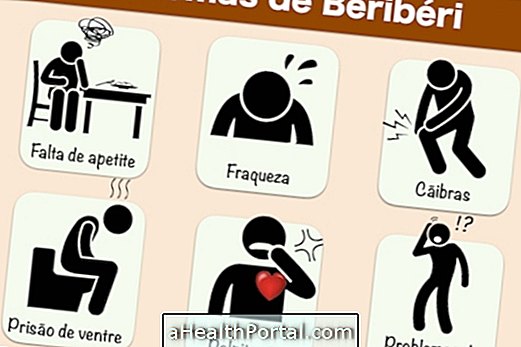Dysthymia, also called a bad mood disorder, is a type of chronic depression where the individual has symptoms of mild depression on most days for at least 2 years, and it is difficult for the individual to know what led him to this state depressive disorder.
This disease can be diagnosed by a psychiatrist, psychologist or psychoanalyst, but there are some clues that help in its diagnosis. The test for dysthymia is a simple and practical way that can help in the diagnosis of this disease, take this test here.

Does the illness of bad mood have a cure?
Dysthymia is cured and can be achieved with the use of antidepressant medications prescribed by the psychiatrist and with the follow-up of a psychologist or psychoanalyst. The duration of treatment of dysthymia may vary from 1 to 4 years, but it is possible that the individual presents new dysthymia during the life, needing again clinical and psychological treatment.
Treatment to improve mood
Treatment for dysthymia can be done through sessions of psychotherapy or psychoanalysis and with the use of antidepressant medicines such as fluoxetine (Prozac), sertraline (Zoloft), venlafaxine (Effexor) or imipramine (Tofranil) under the guidance of the psychiatrist.
The sessions of psychoanalysis can be of great help in case of dysthymia, especially cognitive behavioral therapy, because the psychoanalyst can help the individual to find the circumstances that lead to depression and thus structure an emotional response appropriate to each situation.
See what to eat to improve mood in this video:

Symptoms of dysthymia
Signs and symptoms of dysthymia are:
- Frequent moodiness;
- Excessive criticism;
- Anguish;
- Anxiety;
- Restlessness;
- Dissatisfaction;
- Irritability;
- Lack of appetite or excessive appetite;
- Lack of energy or fatigue;
- Feeling lack of hope;
- Social isolation.

There may still be poor digestion, muscle pain, headache and poor circulation, and the individual often complains about not being happy but is not sad. The phrase "oh day, oh heaven, oh life, oh bad luck" seems to express exactly how the individual with dysthymia feels most of the day.
The diagnosis of dysthymia can be made by the psychiatrist, psychologist or psychoanalyst through a simple conversation with the individual, and it is not necessary to perform any specific type of examination.
What causes bad mood illness
The causes of dysthymia are not fully understood, but it is known that it may be related to poorly resolved emotional situations that occurred in childhood or adolescence. In addition, the temperament of the individual and the stressful situations of the day to day can influence and aggravate the picture of the dysthymia leading the individual to the depression.






















